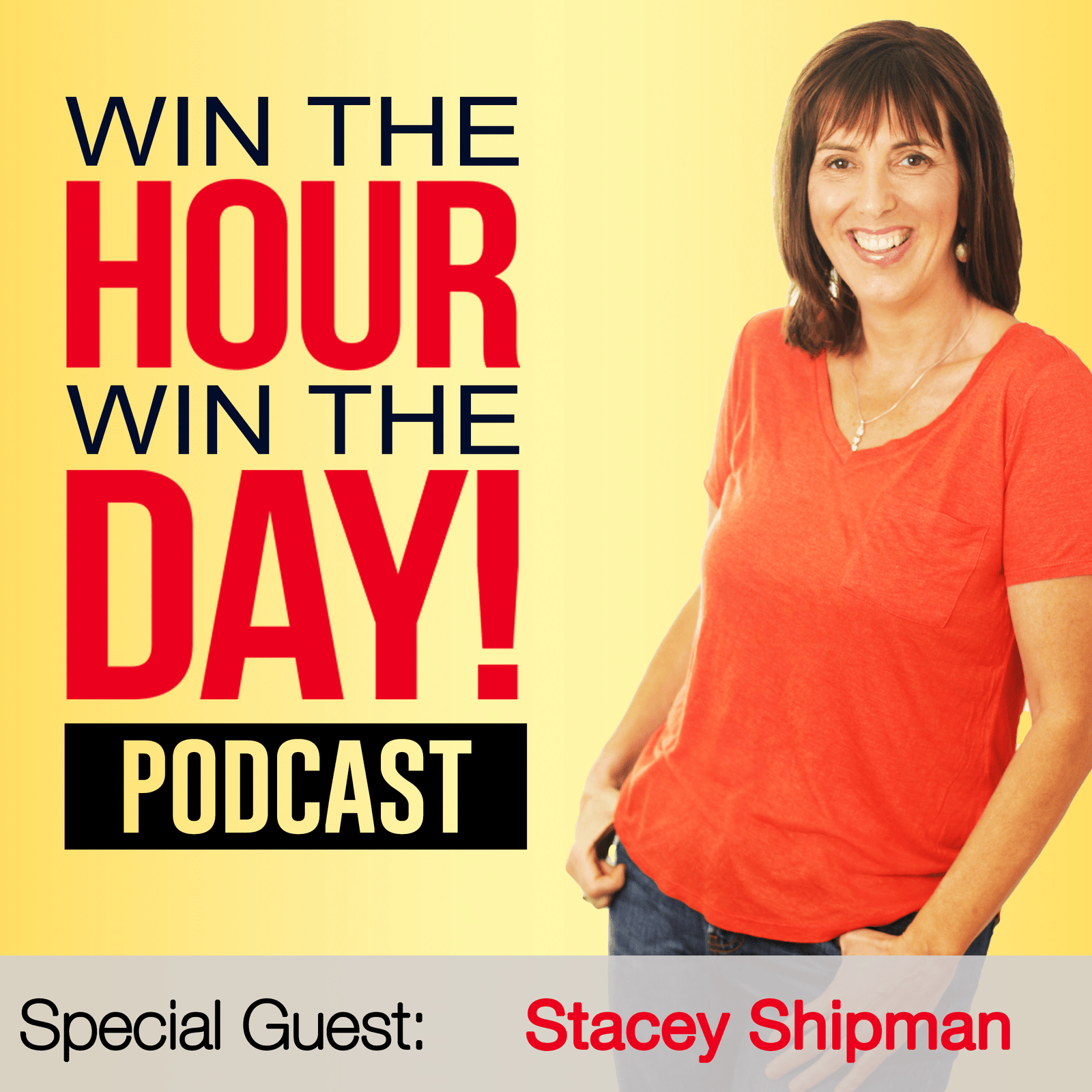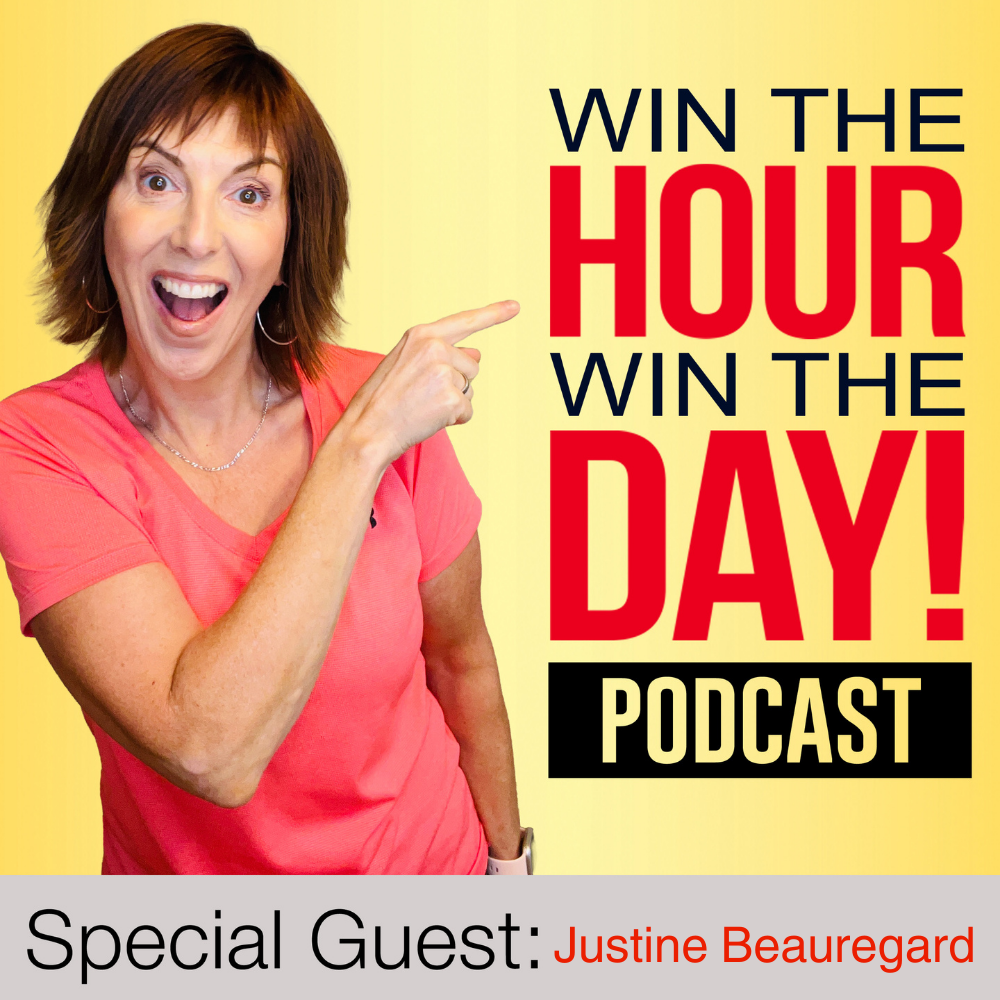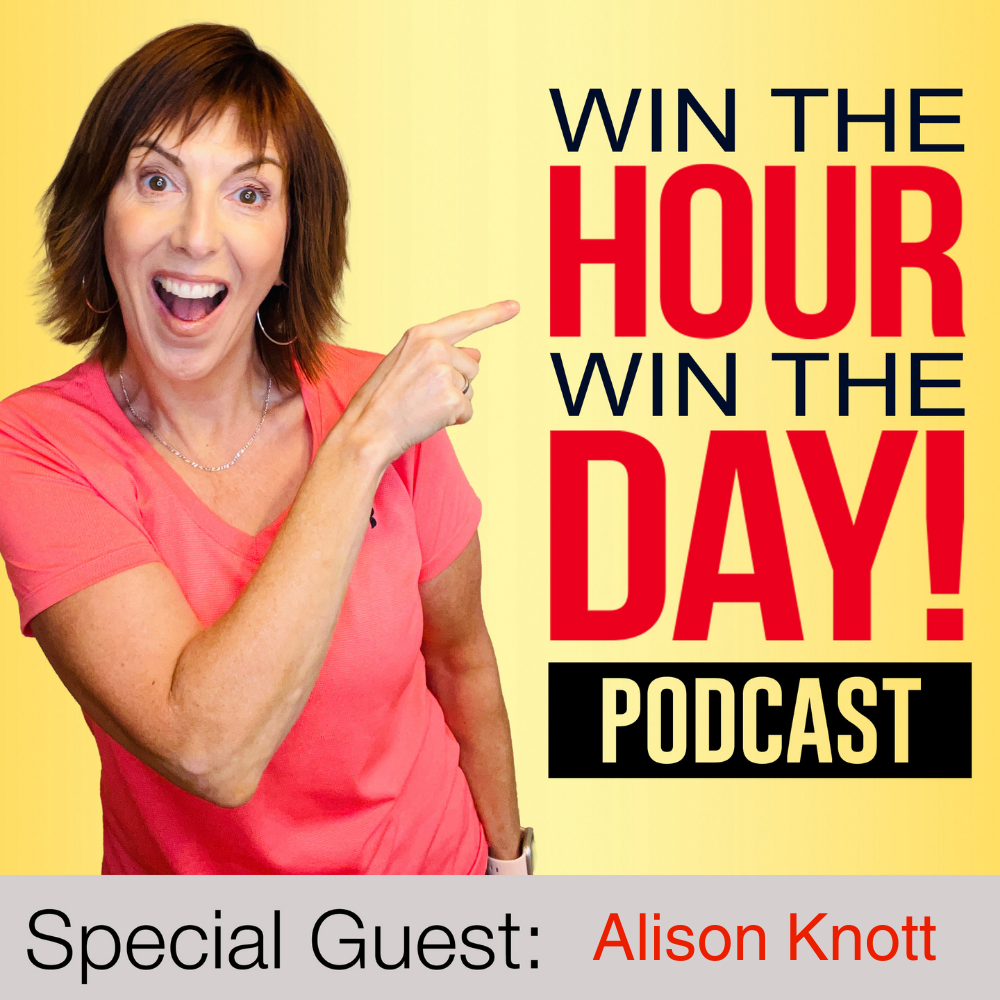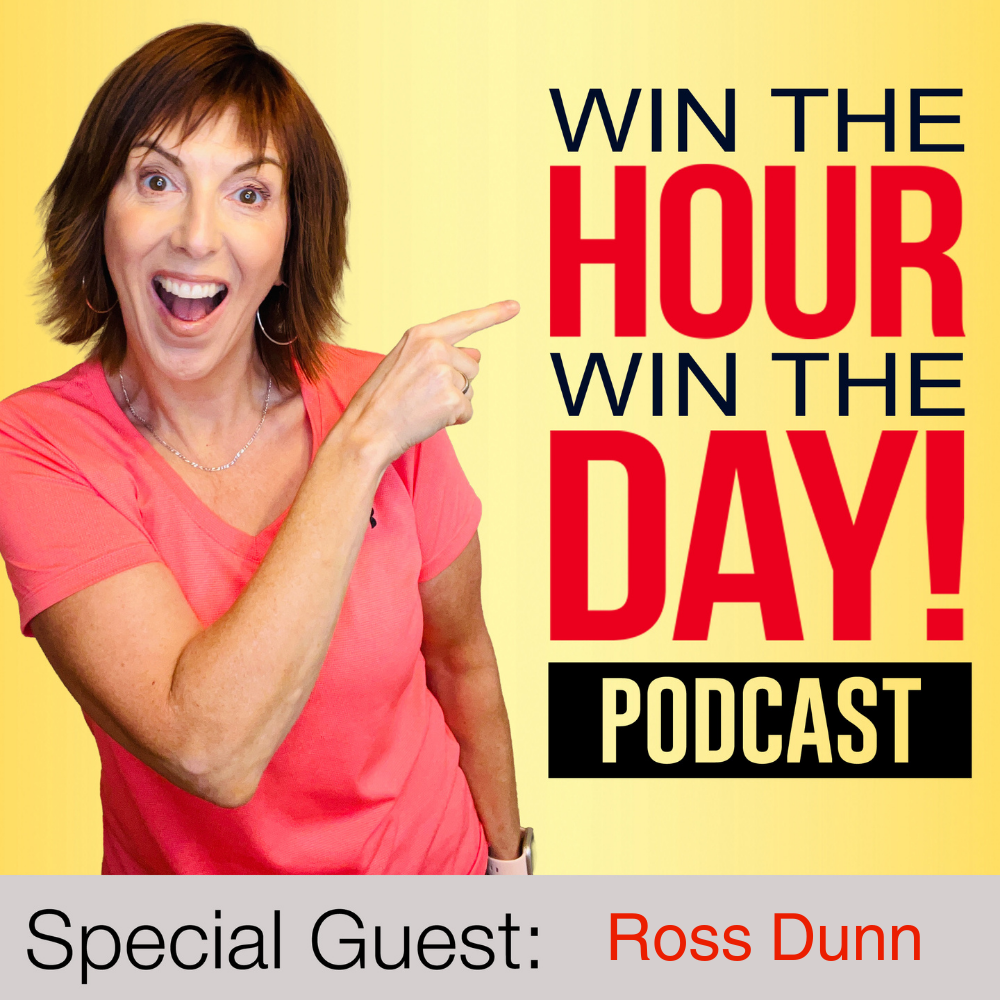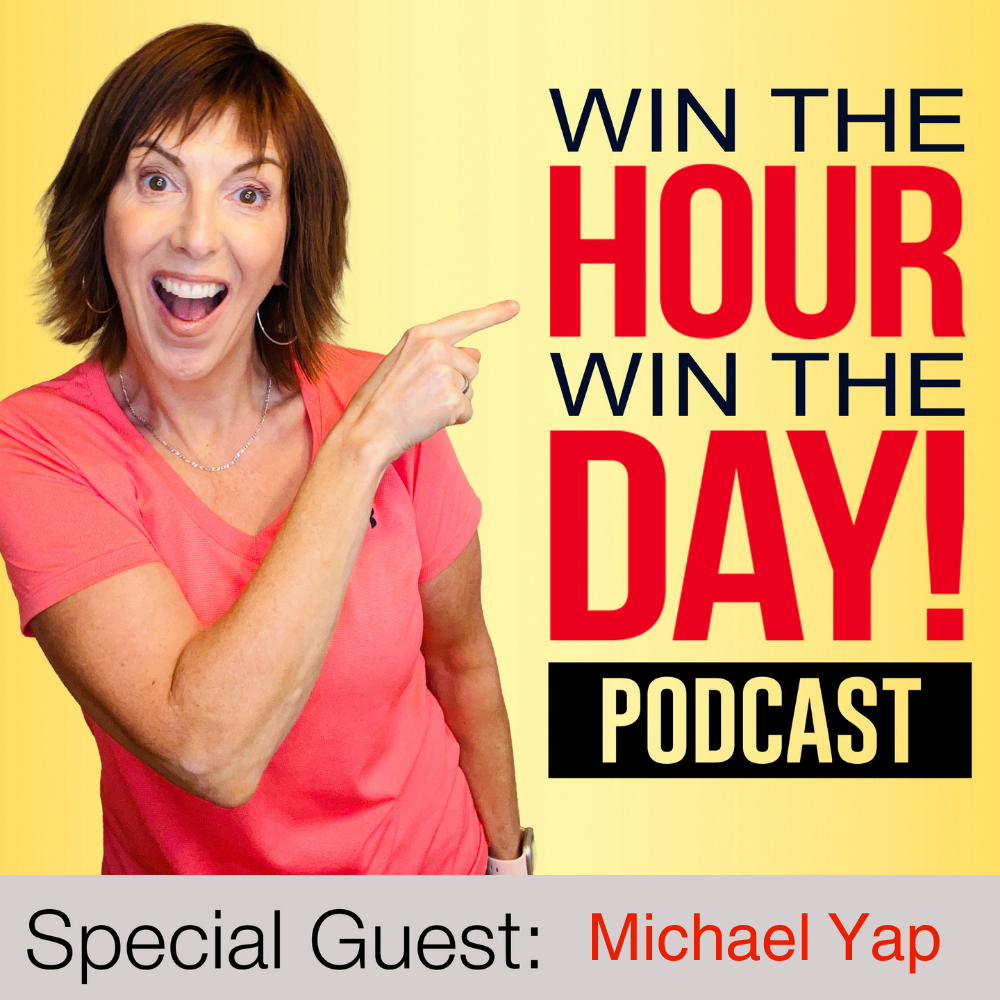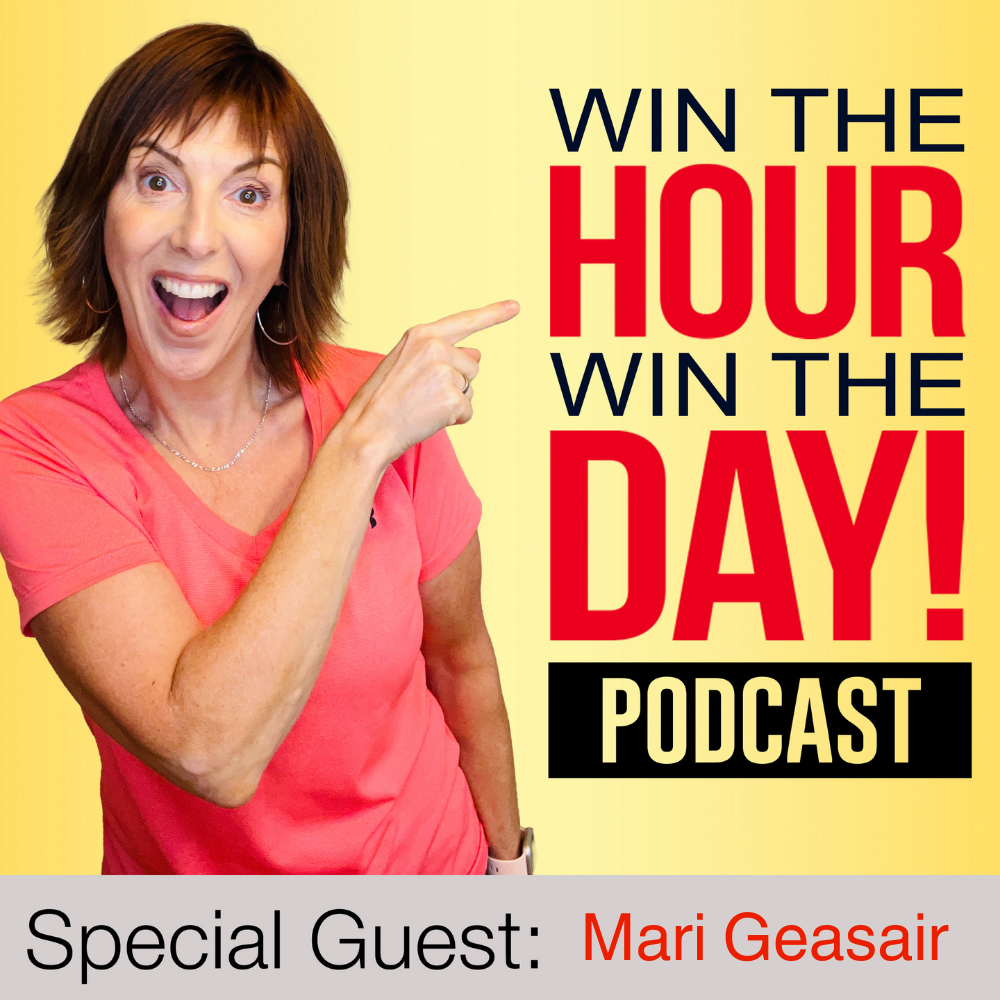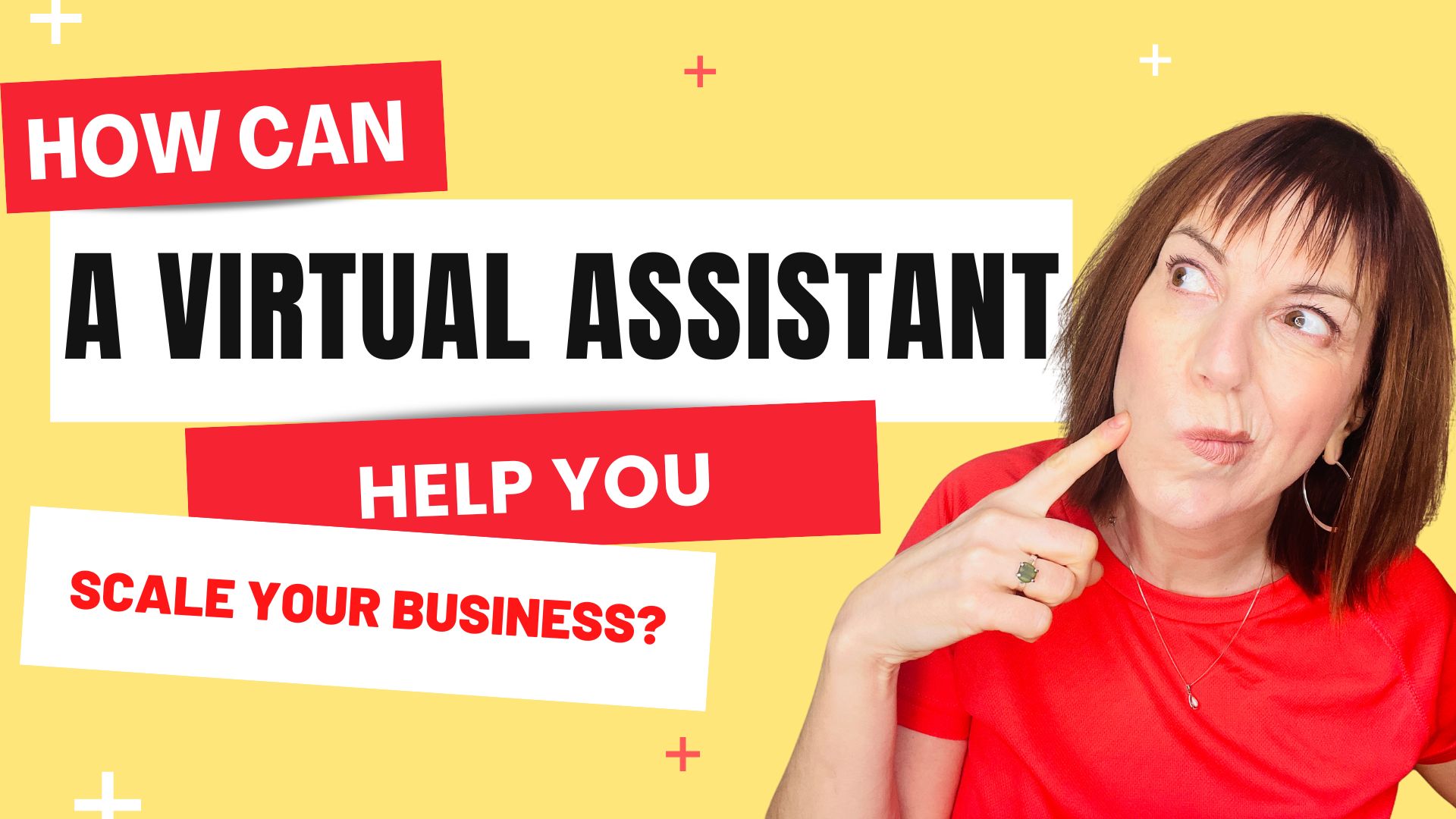Episode Summary
Stacey Shipman schools us on how to network and grow your net worth. Hate the idea of networking events? Then this is the show for you! Listen in and hear my aha’s!
Learn:
-what networking should look like and why it normally doesn’t work
-how to make real connections and money
-why networking can be your secret weapon! And so much more!
Join The Community: https://www.facebook.com/groups/WinTheHourWinTheDay/
Win The Hour, Win The Day! www.winthehourwintheday.com
Podcast: Win The Hour, Win The Day Podcast
Facebook: https://www.facebook.com/winthehourwintheday/
LinkedIn: https://www.linkedin.com/company/win-the-hour-win-the-day-podcast
You can find Stacey Shipman at:
Website: https://engagetheroom.com/
Facebook: https://web.facebook.com/engagetheroom
Email: stacey@engagetheroom.com
LinkedIn: https://www.linkedin.com/company/engage-the-room/
Masterclass: Working Hard Sucks And It’s Costing You Money!
https://winthehourwintheday.com/working-hard-sucks-and-its-costing-you-money-masterclass
Win The Hour Win The Day
https://winthehourwintheday.com
Check out the Outsourcing Playbook For Busy Entrepreneurs here: https://winthehourwintheday.com/outsourcing-playbook
Stacey Shipman Podcast
[00:00:00]Kris Ward: Me and my lists, I don’t know about you, but I don’t have time to do all this twice. Okay. Take selfies. Book record, use timer, gallery. All right. Now I’m triple checking. Cause I’m all scared to check the mic.
[00:00:23] Use an audio microphone. Perfect record. Okay. Freaking zoom, it records for like six months and you don’t touch it. I look if it records at times. I don’t even need to record. And then you’re like, oh, I think I’ll just triple check. Thank you, zoom. Okay, here we go.
—————————————————————————————————————————–
START[00:00:51]Kris Ward: Hey, everyone. Welcome to another episode of Win The Hour, Win The Day. I am your host, Kris Ward. And today we have Stacy Shipman in the house. Now, Stacy is gonna talk to us about networking and engaging and really how you can sell yourself and your services effectively while networking. Stacy, welcome to the show.
[00:01:15]Stacey Shipman: Thanks, Kris. It’s good to be here.
[00:01:17]Kris Ward: All right. So you’re all about this. You’re the Co-host of Engage The Room Podcast and you’re all about facilitating and face-to-face networking, a virtual, you know, we’re going to call. Yeah. I don’t know if that was, we’re going to call it. I’m still gonna call it face to face when we’re doing virtual.
[00:01:37] Right? Okay. So a lot of us don’t like networking and I know I sort of used excuses in the past for this. Although I did it back in the day when a business was new and I would go to ‘the breakfast’ or whatever, the local business, when my business was still local. Because now it’s very global, but for me, I did okay
[00:01:58] when I had to go to ‘the breakfast is’ because I thought, well, there’s a purpose and a goal and there’s somebody sitting beside you. And then I didn’t like the.. but the downside to that is if you didn’t like who’s sitting beside you or like, it was not a whole lot of conversation going there, but then there’s other events where you’re just supposed to mingle and network.
[00:02:15] And I just, I dunno it, to me, it seemed like, okay, I’m so if it’s an album my way in and try to Bahaha have engaging conversation with you, but there was no framework. So, I’m pretty confident, comfortable, and outgoing. And yet I found it a chore. So I know there’s people that, I’m told all the time, don’t have my energy.
[00:02:35] And so if it was a chore for me, my heavens, hello. And then, then we can always lean into ‘the, oh, but I’m really busy. I have important work to do.’ And then you go to this event and it’s like, this wasn’t fun. So I should’ve just stayed hiding behind the desk. So there, they just purged all my concerns. And you can start from there.
[00:02:56]Stacey Shipman: Your concerns are… You’re not alone in your concerns. And, you know, as you said, even though you might be outgoing and enter, you know, big energy, it’s awkward for so many people. Granted, the folks who tend to gravitate towards me and my message are quieter. I work with a lot of technically trained, analytically minded, even shy, introverted folks.
[00:03:23] I do work, you know, I tend to work in that space, but it’s awkward for everybody. And I am one of those analytically minded, shy people who has come out of my shell over the last 15 years. But I remember going into my first networking event and it was exciting because I was just starting my business at a corporate.
[00:03:45] But as I walked into that, or down the hall into that room, my heart rates started, you know, my heart was beating really fast. My hands were shaking and sweating and I was like, what if they don’t like me? What if they think my business is silly? What, you know, what if, what if, what if, and then I ended up walking in after I almost left.
[00:04:02] I almost didn’t go in, but I didn’t want to get another job. And I was greeted so warmly. By this.. the director of the organization. And she immediately introduced me to somebody. So I didn’t have to walk in this room on my own full of strangers, having never done this before. And I share that because it’s awkward for a lot of us.
[00:04:27] For a few reasons. One, some of us are shy. We don’t have the skill or knowledge or confidence to do it. We’re not sure how to talk about ourselves. If we walk into a group that’s already established, you can feel cliquey. And then you’re not really sure if you’re welcome or if you belong there. And I don’t know about you, Kris, but I’ve walked into meetings over the years where nobody even greets you at the door.
[00:04:51] And if you’re new to that group, that’s a little unnerving. That’s unsettling because you’re not really sure what to do or what to expect. So there’s so many reasons why it’s awkward and uncomfortable and unnatural. And I think, how you’re greeted and how you’re set up. To be successful in that space.
And that setting has a lot to do with it as well as your own individual. You know how you show up personally.
[00:05:19]Kris Ward: Yeah. So you can’t control how the event is. The event is run. I’ve seen ones run better, you know, end even virtually here. You’re going to hear all the ugly side of this of me because when you’re so time pressured as entrepreneur, and we’re all about creating your W.I.N Team and being in that W.I.N Formula, 60% creation, 40% admin mode, and most, but most people, most entrepreneurs are just trapped in that web of admin, 80-90% of the time.
[00:05:47] Right. And so they’re always racing the clock and they’re like, ah, I’ve got to go network. And then it just seems like when you have so much to do, take a step out and, you know, without any sort of clarity or guidelines, or is this event going to be worth my time. And then how do you measure that? Just cause it didn’t happen today to make us all a connection.
[00:06:03] Doesn’t mean it’s not accumulative. Right? There’s all that. But the dark side of it is, I’ve even done virtual events. Okay. I’m just going to tell you the way it is. I don’t like games. I don’t want to go, like, I’m not a ‘go to a wedding, baby shower thing.’ And we play this game with whatever. Like I just don’t have that in me.
[00:06:22] And so the other side, sometimes you get to these network things, even online and they’re like, oh, we’re trying to make everybody engaged. And it’s just… forgive me for saying this, but in my mind, it’s silliness. Right? So then you could have somebody that’s really trying to be structured. It’s not for me, but I do understand the power of networking.
[00:06:41] Cause I’ve talked about this on the show before where I have gotten busy in the past when my business was newer and then lost connections with people because I didn’t sustain that relationship. So I wasn’t networking. Cause I always think, well, if I have a reason to call them, I will. But I wasn’t maintaining or nurturing the relationship.
[00:07:00] So then I lost really important relationships because I hadn’t talked to them in three years. You can’t just call somebody every three to four years and say, “Okay, what are you doing now?” Because whatever I like to try and back in. So I realized I was rotating relationships. So I do believe very much in the power of networking.
[00:07:18] But how can we say see navigate our own map? How can we sort of control it so that we can figure this out and do it so it’s purposeful and not be a victim to somebody else’s system and then also that awkwardness? How can you help us?
[00:07:34]Stacey Shipman: So my approach to everything is what I call, “Shed the formality.” And there’s all these beliefs and behaviors that we’ve built up over time, or that we think, you know, that other people do that don’t don’t fit who we are.
[00:07:46] And we have to have the strength and confidence to say that doesn’t work for me and I’m not going to do it. I’m not going to do it that way, quite frankly. And that’s easier said than done. Of course. So it’s the first of it, the first of it is being aware. Being aware of how you feel about networking, be aware of how you’re showing up when you’re networking. You know, are you nervous?
[00:08:07] Are you excited? Are you overly energetic? Not letting anybody else have a word in. So there’s our own presence, then there’s the message of how we talk about ourselves and our work in a compelling way, but also being able to elicit that information from others. And then the third part for me is: as you’ve already touched on is the after
[00:08:30] you go to an event or you meet somebody as the staying in touch and the follow-up. And that, I see people falter across the spectrum of what I just said, but the followup and the after part is really where people… they just, they don’t do it. And that’s because they don’t want to bother people or they don’t know that it’s part of the process.
[00:08:54] I know I didn’t when I first walked into a networking event, it’s because my husband had told me, if you want to start a business, you need to network. I didn’t know what that meant. I worked in the corporate world. I didn’t have to network. I was a behind the scenes person. So I thought naively that I was going to go in this room, meet all these people and they would become my client.
And at the time I wasn’t actually in the wellness space. So I wasn’t doing what I’m doing now, and that was so not true. So…
[00:09:23]Kris Ward: When you’re in there, if you’re under the guideline, the misconception that you go in there and you’re gonna get on these new clients, like they’re selling to this people who are selling, so they’re in there trying to sell to you. And if it’s done, it’s done well. It’s just like, you know, a dog fight. Really?
[00:09:41]Stacey Shipman: Yes. And what I’ve learned. And I think this is also a mistake or a myth or whatever you want to call it. Networking is not selling, it’s relationship building. It’s making connections, it’s meeting people and those people might become your clients in the future.
[00:10:00] They might become supporters or people that you can just turn to for support, encouragement, ‘I’m having a bad day,’ that kind of thing. They might become your coach. Maybe you hire them or some other support system that you need for your business. They might be a referral partner or a collaborator. There are all different reasons we need to meet people as business owners.
It’s not only to get clients. And I think there is a real misconception that networking equals selling. And if you haven’t sold anything, you are not effective at it. And that can often take the pressure off for people who feel awkward about it, because it’s like, oh, okay.
[00:10:40] I only have to meet a few people. And then the real work starts after you leave. You’ve met them. You know, if you’re online, you’re now connected maybe on LinkedIn or you got their email or something, but it really is that follow-up, the event is the catalyst for the connection and the real work happens afterwards, the consistency, the staying in touch, the continuing to develop the relationship and recognize that that takes time to build trust. And you may not get the client right away.
[00:11:16]Kris Ward: That’s a really good point because I know in theory you’re not there to sell, but yet I’m not sure I knew that in my heart. Like you think: ‘Yeah. Yeah. I think, you know, here’s what I think.’ I think, you know, it’s rude to go in and try to sell. But I do think somewhere in the back of your mind, we all equate that with, well, did I get a solid lead out of this?
[00:11:38] So does that mean it’s worth my time because that time is often pulled away from something else. And we always think we could be doing like, oh, I could be over here behind this computer, banging this out. And it was over there possibly making a connection that might pay off two years down the road when I have to get this done today.
[00:11:54] But as I listened to you think, or listened to you talk, and I think, and I rethink, my perception of this, it kind of now reminds me like, well, you know, we go on social media and we don’t expect to sell instantly. We want people to know, like, and trust us. And so we understand that we need to be seen and people need to get to know us and that’s the long game.
[00:12:20] And that you’re right. I think most of us may say the right thing, but instinctually, we’re not, our gut thinks it’s a failure if we don’t get any better at that. So then the follow-up, which I’m certainly, I dropped the ball for years and I think I’m doing a better job of it now, but we can definitely always improve on it. What do you think a good followup looks like?
[00:12:47]Stacey Shipman: If you made a connection with somebody, a good fault. Well, let me tell you what I think a bad follow up looks like.
[00:12:55]Kris Ward: Yeah, let’s start there. First, we can probably identify that quicker.
[00:13:00]Stacey Shipman: A bad follow up is a no follow-up at all. So you went to the event and you just, you thought I met these people.
[00:13:05] Why aren’t they contacting me? That’s about, that’s bad. For that, I don’t like to judge. That’s not how, that’s not effective. I’ve also seen people simply send a blanket email, even a BCC. So they took, if they got the list of attendees, they BCC the whole list and say it was so great to meet all of you.
[00:13:24] I’m just like, well, you probably didn’t meet everybody. So let’s personalize this a little bit. So don’t…avoid the blanket BCC, and then I’ve seen the kind of form letter, if you will, to an individual it’s like great to meet you. Here’s my newsletter. You know, let’s stay in touch. And it’s like, even though it’s only a newsletter and you’re not asking them for any money, it still feels a little quick.
[00:13:49] So, I mean, this is my approach. I share it with other people. Everybody’s got to figure out what works for them based on the connection they made and the people that they think they want to be in touch with. But the folks that I want to meet are really.. They are focused on building relationships.
[00:14:07] They see it as long-term. So if I met somebody and felt like I made a connection, then I will say, I will say to them in the moment of that meeting, whether it’s online or in person, you know, ‘I really enjoyed this conversation. Are you open? So I’d love to continue this conversation and see how we might support each other.
[00:14:25] Learn more about what you’re doing. And share more about what I’m doing and see if there’s any opportunities, whether it’s more introductions or actual business opportunities that’s yet to be determined.’ And if they say yes, then I’ll follow up by the next day. Great to meet you yesterday, following up to set up that next phone call or a walk or however you are, zoom call, however you want to do that.
[00:14:51] And actually get it on the calendar. So for me, the follow up, when you’ve made a good connection, is actually a phone call. Talk to them, zoom call, and get in touch. And again, not to sell you. No, but to dig in deeper, you know, because usually at a networking event, you just have a few minutes, but you know, if you’ve made a connection.
[00:15:08] So I like to have a further conversation to see if there’s anything we’re staying in touch about. That’s my approach. You can connect with them on LinkedIn and say, ‘Hey, we met yesterday. I’d love to stay in touch here online.’ That’s definitely a more passive way to do things, but I think it’s still relevant.
[00:15:27] And that way you can follow them and see what kind of information they post and post back and you can stay top of mind with them that way. And that initial follow-up, which has finished. This is different from consistently staying in touch.
[00:15:44]Kris Ward: Okay. So as you say that, I think of, I know for a long time I had to push back on the virtual coffees. I was like, listen, what is this? Right? Like, what do you want from me? I don’t want to do a virtual coffee and hop on a zoom call. Cause I just.. I didn’t get the agenda. And I just felt sometimes people hopped on too quickly. Like through LinkedIn, I didn’t know them like, oh, let’s see if there’s whatever, some alignment here.
[00:16:07] And I’m like, okay. I didn’t trust them. I didn’t let.. there’s going to try to sell. So I did get better. Now I’m more selective, but I will do virtual coffees and they’ve been quite successful for me. So it is about relationship building. So I started buying into that and as you’re talking, I realized I get a lot of praise for videos
[00:16:25] I send out little short videos to thank somebody for something or to get on somebody else’s podcast, or I’ve gotten a lot of really positive feedback on how I market myself on the videos. But now I realize, oh, even just checking in on my list as somebody that I could be sending them a video and say, ‘Hey, I just want to chime in.
[00:16:41] I saw a few things you’re doing this week on social media and want to cheer you on, let you know I’m watching.’ So again, I guess, come up with your own plan, but make these things meaningful because… you know the blanket… I know I had recently somebody reached out to me and I again, try to be more open and he’s like, okay, let’s connect.
[00:16:59] It was through LinkedIn. Right. And I was like, okay. So then he moved it to his assistant, which is fine. Cause I’m all about teams. So then she gave me some dates and I said, okay, great. We’ll pick this one. And I said, ‘Here’s my zoom link.’ And then she said, ‘Well, he prefers phone calls. What’s your phone number?’
[00:17:15] I’m like, okay, I’m not getting a job interview, right? And then he also made a mistake on LinkedIn and he said, where are you? I don’t have the link or whatever. And I’m like, what are you talking about? Well, he got me mixed up with somebody else. So then I realized he’s just blitzing all this stuff. And now you’re telling me what he prefers.
[00:17:32] I’m like, okay. I just backed right out and said, this is going in the wrong direction because I can see you. It’s a numbers game for you. So I think we’ve all seen that, but what you have to learn is not to then just say, that’s your excuse and I’m no longer doing this.
[00:17:46]Stacey Shipman: Right. That’s yeah. I hear you on that. And I’ve had that happen to me as well. That whole… I think they’re doing this to everybody. And, when someone comes back to me and they don’t know what the link is or what my phone number is when they’ve done that all the scheduling is such a red flag for me, which is why I, again, this is my approach. I much prefer making first contact Face-to-face. So I like making contact face-to-face and then staying in touch through social media. I’m not, I’ve not been on…
[00:18:27]Kris Ward: Let me interject here. We’re agreeing that face-to-face can be video, can be virtual.
[00:18:31]Stacey Shipman: Yes, absolutely. Yes, absolutely. Absolutely. Especially these days. I used to do a ton in person haven’t obviously because of the pandemic and now I love the zoom.
You know, being on zoom and video, it’s so efficient. I host my own online and from 9:00 AM to 10:00 AM, that’s it? There’s no travel. There’s no snowstorms to worry about. It’s so fantastic.
[00:18:55]Kris Ward: Not even that, but geographically, like I’ve got clients in England, Australia and everywhere. So obviously if I was just networking face-to-face it would be a very small business for me because I’ve lived in the country now.
[00:19:05] But so what I would say is, okay, this is awesome. I’m a horrible human being at this point. Cause I will not get on a phone call with somebody cause to me it’s so like ordering a pizza now it seems so disconnected. And if you don’t know what somebody’s face looks like, I feel like how could we have started a relationship?
That’s my thing. So I’m not, I just won’t do phone calls. Sorry, everyone. I sound like I’m all kinds of bossy, but I’m looking for, if we’re going to do this, let’s do it right.
[00:19:32]Stacey Shipman: Yes. And you know, I will reiterate and do what works for you. Do what works for you. There’s all sorts. And I can share tips and I’m sure you can share tips and there’s all sorts of people sharing tips and techniques, and it’s great to hear them.
[00:19:47] And then, you know, you really have to… I have a yoga background, so I get a little bind body with some of what I do, but you have to feel it if it doesn’t feel right, like it literally will feel tense in your body. If you’re doing something that does not fit who you are and that, you know, for me, that’s part of ‘the shed the formality approach’. I’m not a cold caller. I’m never going to cold call you, but if I met you. And yeah face-to-face, if I heard you on a podcast, I think podcasts are an untapped networking opportunity because…
[00:20:19]Kris Ward: They’re everything, they changed everything for me.
[00:20:21]Stacey Shipman: Yes. Not only do we now have a relationship for us or, you know, this conversation, but anybody listening.
[00:20:27] It has, I think, a warm opportunity to say, ‘Hey Kris, I heard this episode or, Hey Stacy, I heard you on Kris’s podcast. I’d love to keep talking to you about networking.’ Again, it’s not about selling. It’s about making the connection. And when you reach out through a podcast and say, ‘I heard you on this episode, I loved what you said about XYZ.’ I mean, be specific. Don’t just be a blanket. I heard the podcast like I don’t know. You know…
[00:20:56]Kris Ward: I love what you’re doing on your podcast. It’s awesome. You’re awesome. Filling the blank here. I like the beginning of your sheets down, right? Yeah. Cause I’m not like hello and I never do that to somebody else.
[00:21:06] I’m very specific, but people do that all the time. Like, oh, you have spectacular podcasts and fill in the blank here, you know? So here’s the thing, how often… I mean backing up for a second and about finding out what fits for you. I do remember being in a virtual event, not too long ago, and I got there and it was one of these ridiculous game things that was just so over the top, not for me.
[00:21:27] And I could literally feel my body shifting. Like all of the sudden I felt like I was in French class where I don’t know any of the words and everybody else’s speaking in different language, I’m like, oh, I do not like, how do I pretend that I’ve got bad wifi and just hit a button and get outta here? So it would not have brought out the best in me.
[00:21:45] If you met me, it was like, I don’t, I don’t want to play this game. I don’t want to do this. So, then you’re right. The people meeting me that day think, oh, I’m coming off differently or I’m uncomfortable. So it’s not going to be fun. Right. How often… what does… So the follow up can be on social media afterwards. How often should we stay in touch? What is a good follow-up? What does the consistency look like?
[00:22:08]Stacey Shipman: Yeah, that’s a great question. And I think it depends. It depends on how great of a connection it was. So, there are people that I talk to that I am in touch with very often. I mean, sometimes weekly, sometimes every couple of weeks, but they’re my inner circle.
[00:22:27] So there’s different layers of connection. And so you figure out who’s in your inner circle and good practice for that, that I’ve been taught and I use is, you know, who are your top 50. Okay. And those people, you can stay in touch with however often you want. That might be friends, it might be family. It would be really close colleagues that you’ve met and you might be in touch with them weekly or even more frequently than that.
[00:22:50] And then you can expand that circle to say like top hundred, you know, the next hundred people and they might be every month or every three months. I definitely think a minimum of like quarterly, at least just to say hello. And again, it’s not selling anything. It’s simply a, ‘Hey, I’ve been thinking about you.
[00:23:08] Or I saw this article that reminded me of the conversation we had and thought you might like it. How are things going?’ It’s just a simple reach out. And every three months, some people will say twice a year. Again, you have to figure out what makes sense for you from a timeframe perspective. And then of course there’s a newsletter that might be less personal connection with people who you still keep in touch with.
[00:23:32]Kris Ward: I think as you’re talking, it’s really, it’s really opening up things I hadn’t thought about. So, you know, you’re right. It’s different relationships, you know, like I speak to my mother every day and then I speak to my niece every week. And so there’s different relationships that have different levels of commitment or intimacy, but now I realize.
[00:23:49] You know what the top 50 you could say, once a quarter I could send them a two minute video. I’ve really loved, you know, what you’re doing on social media, blah, blah, blah. And of course it is sincere and not generic and not blasting other people, a video to you about you. And then I thought, as you were talking, I’m like, okay, so the second 50, who are not as immediate a connection, people I would do audio on their Facebook.
[00:24:13] Like send them a message and audio, ‘Hey, just want to check in.. whatever. ‘So it’s really making me rethink the commitment to the relationships and how I can, like in your personal life, how you display, not affection, but I guess commitment or care.
[00:24:29]Stacey Shipman: I call it care in people. If you want people to be on board with you. Whether that’s by what you’re selling or be an advocate for you, promote on your behalf. They have to know you care and stay in touch that way. Even if it’s a text and audio, however you do it as simple, like, ‘Hey, been thinking about you’ can go a long way, especially these days.
[00:24:51]Kris Ward: Yeah, that’s true because in my personal life, I’m very passionate about that. Like, I’ve been very blessed where if I’ve lost somebody, I know that I did my best through that whole relationship. I was always very big on telling people what I think. Cause I think there’s that we.. has a habit telling other people how great that person is and not to the person. Right. Just as a praise.
[00:25:11] So, all right, well, this is, it’s such a simple thing I have to say Stacy. And I was like, okay. Well, you know, all right, what are we networking? Ah, but it really, I think it’s like anything done well, the slightest change is really changing the result. Almost like if you’re cooking something. The little too much or not enough spice changes the whole recipe, right?
[00:25:33]Stacey Shipman: Yeah. Yeah, it does. The one other thing I would say is if you don’t like what’s available to you start your own thing. I mean, that’s what I did. And I did it in part because I like it. I like hosting. I like gathering people. I’ve always been that way since I was young, but I didn’t like, again I don’t like walking in a room and not being greeted.
[00:25:56] You know, there were certain things that I thought could be better, especially since I work a lot with quieter, shier folks who are very uncomfortable doing that. And I made a commitment to myself that you will walk. You might walk in a stranger to one, whether it’s a workshop or an event, whatever, but you will not leave as one. And I have made a commitment to that and so it doesn’t have to be dreadful, draining or anxiety provoking if you have the right setting.
[00:26:32]Kris Ward: So networking in German or whatever, doesn’t mean a long-lasting painful experience. Okay. All right, Stacy, where can they find you online? Where can they network with you, Stacy?
[00:26:45]Stacey Shipman: Yeah, absolutely. I have engagedtheroom.com is my website. There is an events tab that has the calendar. Everything I do right now is on zoom. So I have welcomed people from across the United States and Europe and internationally. So it’s been awesome.
[00:27:03]Kris Ward: Well, and you’re awesome too. So thank you so much. Your insights were just very helpful to me. I got to get off this call and start networking again. I have made my notes. I’m on it. Okay. All right, guys, we will see you in the next episode. Thanks so much. END[00:27:21]
———————————————————————————————————————–
Those are the perfect ones to me. Cause I really did have, I was like, oh, cause I do have now a spreadsheet where we keep, we call it Chris’s network and I keep in touch with everybody.
[00:27:32] But now I realize, oh, you know, but I can be doing a better job and having a tier system and, and there, and I D I, people even like. You know, we just started our Facebook group and because I didn’t know what to do. I’m the opposite. I hate hosting people. I hate the response, like something casual at my house.
[00:27:49] If it’s a barbecue dinner family, I’m great with that. But the Orca really organizing something for people, I think, oh, the responsibility. And so I didn’t have a group for a long time because of that. But when I was welcoming people into the group and I get this all the time, I leave detailed audio messages to them.
[00:28:07] I checked out their profile and I talked to them and people act like I bought them a present. Right. Frankly, it’s quicker than typing it all out. And you know, it really worked for me cause I’m lazy. And then they do hear your energy in it. It does make a difference because I know like somebody I was talking to on Facebook for like six months and then he showed up on my show.
[00:28:26] And when you showed him. Excuse me for six months, we’ve been going back and forth on Facebook. I did not know you had like a Cockney English accent. It changes everything I know about you. I know that’s changed now. I need to retell all those stories in my head about your posts, because now it’s a very strong accent that I hope it.
[00:28:45] I know you if I don’t know. Right. So true. Fabulous. Alright. Last section matters. Tell me about your podcasts engage room. I didn’t even get to check that out. I didn’t know of it. Hold on one second. This is actually called shad. The formality. Oh, I got that wrong. My apologies. You could, you could have stopped me in the beginning.
[00:29:02] Yeah. That’s all right. It says as opposed to, oh, here it says is a podcast host and a creator of engage the room. It sounds like I know I’m working on. Maybe changing some of that. So that it’s all the same, but it’s all right. It’s anywhere it’s posted the formality. And it’s, uh, been about, um, talking to people about how they’ve overcome, you know, their own beliefs and behaviors that kept them from putting themselves out there in different ways.
[00:29:29] So whether it’s selling or networking or speaking, or taking a leadership role or even starting a business. So how do they get out of their own way? Basically? Yeah, I did a lot of that in the beginning and I leaned into. Really valuable excuses, right? Because like these were good excuses. And that’s where I talked to people really, when I talk about creating a win team and why that’s so important is because then.
[00:29:56] You know, you can’t lean into those excuses because that becomes the work. And it really like the networking that I now have time for it, all the things I do really explodes the business and you’re right. The podcast has changed everything for me. And it’s so important because it’s just so easy to go.
[00:30:11] I’m busy working. Look at me. I’m very, I’m really doing the job here. Do not judge me. I’m working. Right. So, yeah. Yeah, yeah. Fabulous. All right. I will check out your show and if you get bored enough and you think I’d be a good fit, let me know, but I will definitely be. Checking it out for sure. Yeah. Awesome.
[00:30:28] Okay. Also, do you have any questions for me? Um, no, I assume you’ll send me information when this is posted so I can share it. Yep. A hundred percent. So we usually send it to you on the Tuesday of my team dictates that. Um, and so what happens is they will send you on the Tuesday, uh, they’ll send you a lot of links and things that you need and a graphic and all that stuff.
[00:30:52] And then they will remind you on the Thursday. So I am not one of these podcasts that they say, oh, you were out of two weeks ago or. Go find it. Yeah. That’s not what I do. Yeah. I don’t do that either. And I’ve, I’ve been a guest recently and I’m like, I have to go search it. I gets up, it’s been up for two months and you didn’t even stop.
[00:31:11] How is that helping you? You told me it’s up and I got to go find it like, well, what if they didn’t even tell me it was up? Yeah. I was on a bigger podcast that I thought was like going to be the cat’s Meow. And then somebody said to me, I heard you on it last weekend. Like, it’s up, you didn’t even tell me.
[00:31:28] My gosh, you think I wouldn’t cheered you on, like, I would have, we could add some dialogue about that online. Maybe you misunderstand the whole process, but I’m like, okay, how do I know to start looking for three months from now randomly, right? Yeah. I don’t know. I know you’ll get me started networking obviously is sucky.
[00:31:45] Maybe that’s the conversation we could have on my pockets. Yeah. Oh yeah, for sure. Yeah. Yeah, no, absolutely. Yeah. If that interests you, I’m just throwing myself and others of that interest. You send me an email. I would love to have another reason to connect with you for sure. Okay. I will. Um, I’m going to, I am putting things, guests on pause because I’m working with a business coach right now, and I want to make sure that it’s going in the right direction, but I will definitely, um, I will definitely put you on the list though, for when.
[00:32:14] On pause. I would, as I would, as a marketing strategist, tell you that the best, the most successful people in the world have everything under one brand like chicken soup for the soul and stuff, remembering your name and then your podcasting and then your company name. So I would try to streamline that for you.
[00:32:29] That’s what I’m working on right now. All right. Let us know if we can cheer you on in any way, Stacy. Okay. All right. Thanks guys. Thank you. Okay, bye.

